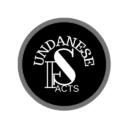Ngaruat Ceremony, Seeking Safety in Sundanese Tradition
The Sundanese people have a unique tradition for seeking safety and protection. This tradition applies to various aspects of life: oneself, the home, offspring, vehicles, and everyday items. This ritual is known as the Ngaruat Ceremony.
What Is Ngaruat?
Etymologically, the word ngaruat is often found online spelled as ngaruwat. However, in standard Sundanese language, as written in the Kamus Basa Sunda by R.A. Danadibrata, the correct term is ngaruat.
Furthermore, according to R.A. Danadibrata, ngaruat is a ritual blessing performed for new objects or humans (such as newborns). The aim is to ensure durability, long life, and ultimately, to attain safety in both worldly life and the hereafter.
The Meaning and Purpose
In reality, this ritual is not just a general request for safety. More specifically, ngaruat serves as a ritual of warding off misfortune, asking for protection from disasters, dangers, and unseen disturbances.
For instance, in Indramayu Regency, the local community continues a similar tradition known as ngaruat or ngarot. According to the official website of the Indramayu government, the word ngaruat originates from Sanskrit, meaning “freed from the curse of the gods.” Today, people in Lelea Village, Lelea District, still preserve this cultural ritual through generations.
Ngaruat and Ruqyah: A Comparison
To understand ngaruat in modern terms—especially for Muslims—we can compare it to the Islamic practice of ruqyah.
A study by Rohmansyah et al., published in Jurnal Islam Futura, explains that linguistically, ruqyah means protection. Ibn al-Athir described ruqyah as a supplication to God for protection from various illnesses like fever and epilepsy. Meanwhile, Ibn Taymiyyah explained that ruqyah is a singular noun, the plural of which is ruqā, meaning special utterances intended to heal illness.
Interestingly, the Ristek Muslim Arabic-Indonesian online dictionary defines ruqyah as a spell or incantation, while ar-ruqqā refers to people skilled in reciting incantations.
Thus, ruqyah and ngaruat share similarities, as both aim to eliminate harm and attract safety. While ruqyah comes from Islamic teachings, ngaruat represents Sundanese local wisdom that aligns with the same essence.
The Role of Ngaruat in Sundanese Life
In earlier times, before Islam became widely taught in the Sundanese region, people practiced ancestral traditions such as ngaruat.
According to R. Akip Prawira Soeganda in his book Traditional Ceremonies in Pasundan (1982), Sundanese people used the word “illness” only for conditions caused by unseen forces. That is, ailments from falling or accidents were considered ordinary sicknesses. On the other hand, illnesses caused by mystical disturbances had to be treated traditionally, depending on the age of the person.
If the patient was a child, parents could treat them using ancestral methods. However, when adults fell ill, the community would call a dukun (traditional healer). Of course, the healer would require special offerings to strengthen the effectiveness of their incantations.
Moreover, if the illness persisted or became chronic, the community would hold a full ngaruat ritual, often involving a wayang (shadow puppet) performance. During the ritual, the puppeteer (dalang) would perform the story of Batara Kala, which is full of moral teachings.
After the performance, the water that was prepared during the ritual must be used to bathe the sick person. This shows how the Sundanese use cultural elements as a holistic form of healing—addressing physical, mental, and spiritual well-being.
Ngaruat for the Home: A Symbol of Protection
Aside from humans, ngaruat is also performed for new homes. Usually, the community plants a hanjuang plant in a specific corner of the house and buries a rotten goose egg (kacingcalang). This ritual symbolizes the burial of illness or negative energy and expresses the hope that the house will be a safe and peaceful place to live.
Conclusion
In summary, the ngaruat ceremony is a cultural expression of the Sundanese people to protect both physical and spiritual life. Though it may seem traditional, the values it carries remain relevant today: maintaining harmony with nature, protecting oneself from danger, and aligning life with prayers and hopes for safety.
Read More:
Godi Suwarna: The Wild Performer Who Shook Up Sundanese Literature!







